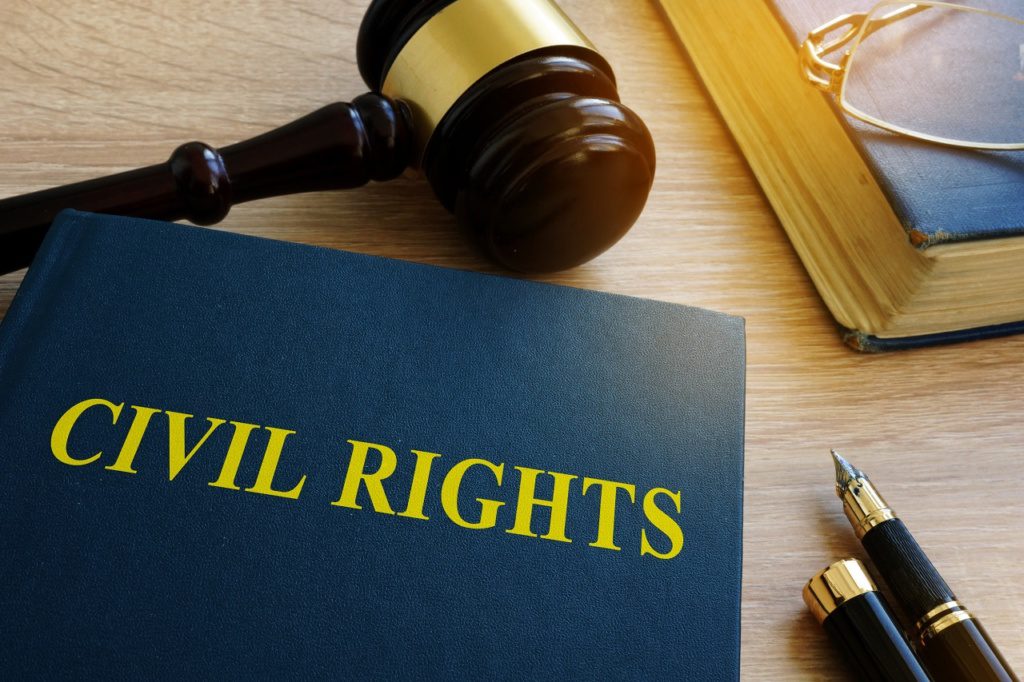Civil Rights Violation Assistance
Helping You Navigate the Aftermath of Civil Rights Violations
Understanding Civil Rights Violations
Civil rights violations can have profound and long-lasting impacts on individuals, often resulting in significant physical, emotional, and financial distress. These violations undermine the fundamental freedoms guaranteed by law and can leave victims feeling helpless and disempowered. Knowing your options and where to turn for help is essential in these challenging times.
Civil rights refer to the protections and liberties guaranteed to all individuals by the Constitution and other federal and state laws. These rights include freedom from discrimination, equal access to public services, the right to fair treatment in the criminal justice system, and the right to vote, among others. When these rights are violated, it can erode trust in public institutions and harm the individual’s sense of security and well-being.
How We Can Help
At The Indigent Project, we understand the complexities and challenges associated with civil rights violations. While we are not attorneys, we are committed to connecting you with the necessary resources and support to navigate the legal intricacies of your situation. Our comprehensive approach ensures that you receive the guidance and representation needed to address civil rights violations effectively.
Connecting You with Legal Resources
- FREE Initial Consultations
- We offer free initial consultations to help you understand your legal options. Our consultations provide you with an overview of your case and the potential steps you can take to seek justice. During these consultations, you will have the opportunity to discuss the specifics of your case with knowledgeable professionals who can provide valuable insights and advice.
- Professional Assessment
- Our team conducts a thorough professional assessment of your case to help you understand the best course of action. We ensure you have a clear understanding of the legal process and what to expect moving forward. This assessment includes evaluating the evidence, identifying potential legal claims, and determining the best strategy to pursue your case.
- Partner Representation for Qualifying Individuals
- For those who qualify, we connect you with partner attorneys who can provide representation in your case. These legal professionals are dedicated to protecting your rights and ensuring you receive the necessary support. Our network of partner attorneys has extensive experience in civil rights cases and is committed to seeking justice on your behalf.
Common Examples of Civil Rights Violations
Civil rights violations can occur in various forms and contexts. Some common examples include:
- Unreasonable Searches and Seizures:
- Violations of the Fourth Amendment rights through unlawful searches and seizures without probable cause or a warrant. Such actions can lead to unwarranted invasions of privacy and unjust legal consequences for the individuals involved.
- Illegal Traffic Stops Based on Discrimination:
- Traffic stops conducted based on race, ethnicity, religion, sex, gender, or other prohibited bases. These discriminatory practices undermine the principle of equal protection under the law and contribute to systemic biases in law enforcement.
- Wrongful Termination or Discrimination in Employment:
- Being fired or passed over for a promotion based on race, gender, age, disability, or other protected characteristics. Employment discrimination can have severe economic and emotional impacts on individuals, depriving them of opportunities and fair treatment in the workplace.
- Physical Abuse or Excessive Force by Public Officials:
- Use of excessive force or physical abuse by police officers, corrections officers, or other public officials. Such misconduct not only violates the individual’s rights but also erodes public trust in law enforcement and the justice system.
- Violation of Miranda Rights and Right to an Attorney:
- Failure to inform individuals of their Miranda rights or denying access to legal representation. These violations can result in unjust legal outcomes and hinder the individual’s ability to defend themselves effectively.
Areas Protected by Anti-Discrimination Laws
Anti-discrimination laws are in place to help protect people in various areas, ensuring equal treatment and preventing discrimination. Some key areas protected by these laws include:
- Education:
- Ensuring equal access to educational opportunities and preventing discrimination in schools and universities. This includes protection against discriminatory practices that may hinder students’ ability to learn and succeed.
- Housing:
- Protecting individuals from discrimination in renting, buying, or accessing housing. Fair housing laws ensure that everyone has the opportunity to live in safe and affordable housing without facing unjust barriers.
- Employment:
- Preventing workplace discrimination based on race, gender, age, disability, and other protected characteristics. Employment laws safeguard workers’ rights to fair treatment, equal opportunities, and a safe work environment.
- Public Accommodations:
- Ensuring equal access to facilities and services commonly accessed by the public, such as hotels, restaurants, stores, and transportation services. These laws help ensure that all individuals can participate fully in public life without facing discrimination.
Why Choose The Indigent Project?
Dedicated to Your Support
At The Indigent Project, our mission is to ensure that you don’t have to face the aftermath of civil rights violations alone. We are committed to providing the resources and support you need to navigate this challenging time. Our comprehensive approach ensures that you receive the guidance and representation needed to address civil rights violations effectively.
Empowering You to Take Action
We believe in empowering individuals to take action against civil rights violations. By providing you with the necessary resources, support, and legal representation, we help you stand up for your rights and seek justice. Our goal is to ensure that you have the confidence and tools needed to navigate the legal process and achieve a positive outcome.
Experienced Partner Attorneys
Our network of partner attorneys has extensive experience in handling civil rights cases. These legal professionals are dedicated to seeking justice for victims of discrimination, abuse, and other civil rights violations. They are committed to protecting your rights and ensuring that you receive the support and representation needed to address your case effectively.
We’re Here to Help
If you or someone you know has experienced a civil rights violation and needs assistance, don’t hesitate to reach out to us. We are here to help you connect with the right resources and support to ensure you receive the help you need. Our team is dedicated to providing compassionate and comprehensive support throughout the legal process.
Can’t afford help with your injury case? We may can help. Click Here!
Frequently Asked Questions
- What should I do if I experience a civil rights violation?
- Document any evidence of the violation, seek legal advice, and report the incident to the appropriate authorities. Keeping detailed records can be crucial in building a strong case and seeking justice.
- How can The Indigent Project help me with a civil rights violation case?
- We offer free initial consultations, professional assessments, and can connect you with partner attorneys for qualifying individuals. Our goal is to ensure you receive the support and legal guidance you need to navigate your case effectively.
- What if I can’t afford an attorney?
- The Indigent Project helps connect you with partner attorneys who offer representation for qualifying individuals, ensuring you have access to the legal help you need without financial burden. We believe that financial limitations should not prevent you from seeking justice and protecting your rights.
- What types of discrimination are covered under civil rights laws?
- Civil rights laws protect against discrimination in areas such as education, housing, employment, and public accommodations based on race, gender, age, disability, and other protected characteristics. These laws are designed to ensure equal treatment and prevent discriminatory practices.
- How long do I have to file a claim for a civil rights violation?
- The statute of limitations for filing a civil rights violation claim varies by state. It’s important to seek legal advice promptly to ensure you meet all necessary deadlines. Acting quickly can help preserve your rights and increase the likelihood of a successful outcome.



